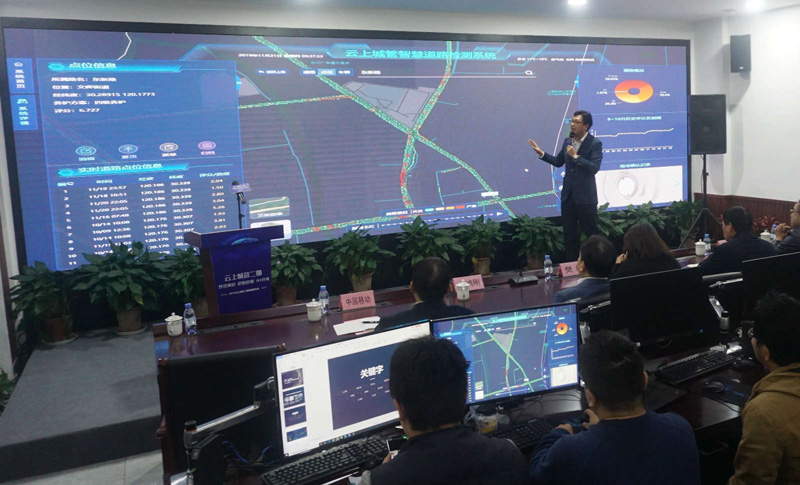Digital technologies make Hangzhou smarter

A staff member with the urban management bureau of Xiacheng district, Hangzhou, East China's Zhejiang province, introduces the application of a new AI-based analysis system in urban management at a launch event, Nov 21, 2019. [Photo by Long Wei/People's Daily Online]
City Brain, a smart city system powered by cutting-edge technologies, such as big data and cloud computing, is making Hangzhou in East China's Zhejiang province a more intelligent city in terms of urban governance.
With the system, enterprises can transfer rental subsidies granted by the government to their employees in just two seconds, a process that used to take around 10 business days.
The City Brain was initially developed to tackle traffic congestion when Hangzhou firstly explored urban governance in digital methods in 2016. By sample analysis of vehicles and monitoring traffic data, the city innovatively introduced a "traffic delay index" that can make traffic lights smarter. The system improved the average speed of traffic flow by 15 percent, though the city has witnessed a net inflow of 1.2 million people and 400,000 vehicles, as well as a 20 percent decline in road areas caused by metro and other constructions in the recent three years.
Achieving an outstanding performance in reducing traffic congestion, the system later extended its reach to digital urban governance, with its innovative achievements being introduced to livelihood sectors, including urban community governance, culture and tourism, and health care.
For example, given the multi-dimensional integration of commercial and government data, visitors can access a park in 20 seconds, and check into a hotel in 30 seconds. Such service has been introduced to 163 tourist attractions and cultural venues, as well as 414 hotels. The city is also home to 603,000 "leave-and-pay" parking spots, freeing the drivers from queuing up to pay for the parking fees. Besides, a total of 254 hospitals in the city now offer "only pay once" service, benefiting over 32 million patients and involving a total expense of 1.5 billion yuan ($212 million).
"It only took 3 days for a couple and a young man in our company to rent their respective apartments, and both of the houses are spacious and have great exposure," Yu Jinzhu, assistant manager of Binjiang Property Management Co., Ltd. in Hangzhou's Jianggan district told People's Daily, who was quite satisfied when speaking of the experience of helping his non-local employees find proper apartments through a new type of government-business platform under the City Brain.

